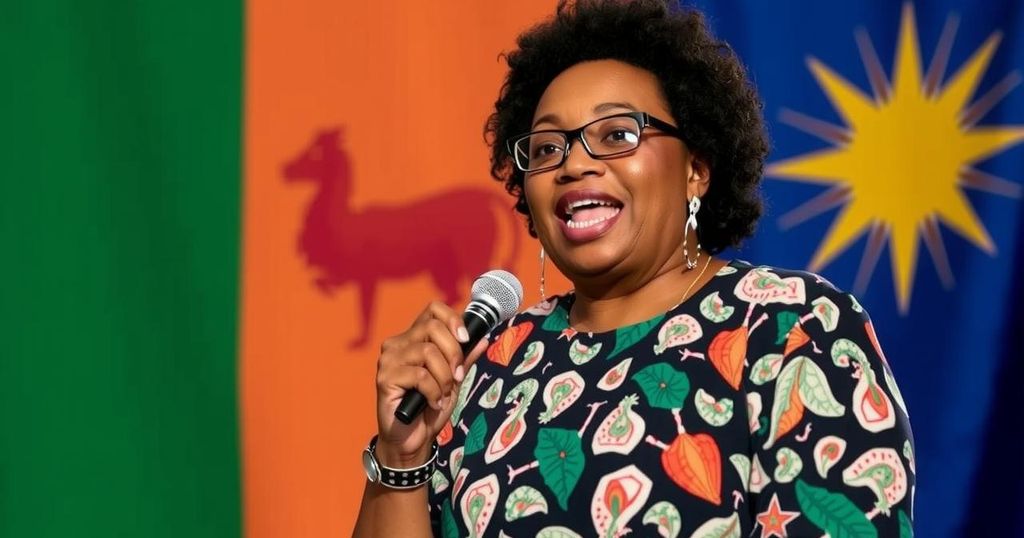Namibia Elects Its First Female President Amid Controversial Election

Namibia has elected its first female leader, Vice President Netumbo Nandi-Ndaitwah, with 57% of the vote in a controversial election. The ruling SWAPO party maintained its power after 34 years since independence. Opposition parties dispute the election’s legitimacy due to technical issues, with some planning legal challenges.
Namibia has made history by electing its first female leader, Vice President Netumbo Nandi-Ndaitwah, who claimed victory in last week’s presidential election with 57% of the votes despite facing challenges during the election process. This win marks a significant moment for Namibia, a nation that has been under the SWAPO party’s control for 34 years since independence in 1990. Nandi-Ndaitwah, who ascended to the vice presidency following the death of President Hage Geingob earlier this year, is celebrated as the fifth president of Namibia since its independence.
However, the election was not without controversy. Opposition parties have expressed their dissatisfaction with the electoral process, citing numerous technical problems, including shortages of ballot papers, which led to the extension of voting days. These issues prompted accusations that the election results may not be legitimate, with some opposition groups pledging to contest the results in court. Notably, the Independent Patriots for Change, led by Panduleni Itula, secured second place in the presidential race, garnering 25% of the vote and forming the second-largest parliamentary presence.
Despite the opposition’s claims and ongoing criticism of the Electoral Commission of Namibia’s handling of the elections, the SWAPO party has retained its dominance in both the presidential and parliamentary races, reinforcing its long-standing position of power in a region where other long-ruling parties have faced electoral setbacks. Nandi-Ndaitwah’s ascent marks a pivotal moment in Namibian history and may shape the political landscape moving forward.
The recent elections in Namibia symbolize a historical shift in leadership, as the nation witnesses its first female president. The ruling SWAPO party, which has dominated the Namibian political scene since its independence from South Africa’s apartheid regime in 1990, faced significant challenges during this electoral cycle, including technical mishaps that called the legitimacy of the elections into question. The election outcome is significant as it highlights both the stability and the challenges facing Namibia’s democratic processes, along with the evolving role of women in leadership positions within the country.
In conclusion, Namibia’s election of Netumbo Nandi-Ndaitwah as its first female president is a landmark achievement in the country’s political history. While the SWAPO party continues its stronghold on power, the controversy surrounding the election process reveals underlying challenges that may affect the democratic fabric of the nation. The reactions of opposition parties and the forthcoming legal actions will be critical in determining the legitimacy of this electoral outcome and the future of governance in Namibia.
Original Source: abcnews.go.com








